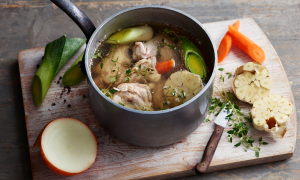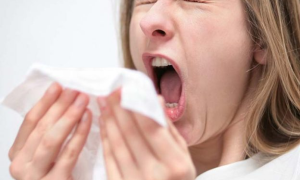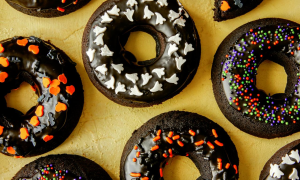Breastfeeding is a wonderful way to nourish your baby and bond with them. However, it is important to stay hydrated while breastfeeding, as you lose fluids through breast milk production. This article will discuss how much water you need to drink while breastfeeding, why it is important to stay hydrated, and tips for staying hydrated.
How Much Water Do You Need While Breastfeeding?
Breastfeeding mothers need to drink plenty of fluids, especially water, to stay hydrated and produce enough milk. The National Academies of Sciences, Engineering, and Medicine recommends that breastfeeding women drink about 128 ounces (3.8 liters or 16 cups) of fluids per day. This is in addition to the fluids they consume from food.
Some breastfeeding mothers may need to drink more water than the recommended amount, especially if they live in a hot climate, are very active, or have multiple babies. A good way to tell if you are drinking enough fluids is to check the color of your urine. Your urine should be pale yellow or clear. If it is dark yellow or amber, you may need to drink more fluids.
Here are some tips for staying hydrated while breastfeeding:
- Drink a glass of water before and after each feeding.
- Keep a water bottle with you at all times and sip on it throughout the day.
- Eat fruits and vegetables, which are high in water content.
- Avoid sugary drinks, such as soda and juice, as they can dehydrate you.
- Limit caffeine and alcohol intake, as these can also dehydrate you.
If you are concerned about your fluid intake, talk to your doctor or a registered dietitian. They can help you create a personalized hydration plan.
Why is it important to stay hydrated while breastfeeding?
Staying hydrated is important for everyone, but it is especially important for breastfeeding mothers. Breast milk is about 90% water, so your body needs extra fluids to make enough milk for your baby. In addition, breastfeeding can make you sweat more, which can lead to dehydration.
Here are some of the benefits of staying hydrated while breastfeeding:
- Maintains milk supply: When you are dehydrated, your body may not be able to produce as much milk.
- Prevents fatigue: Dehydration can make you feel tired and sluggish. Staying hydrated can help you have more energy to care for your baby.
- Improves mood: Dehydration can also cause irritability and mood swings. Staying hydrated can help you feel happier and more relaxed.
- Prevents constipation: Dehydration can make it more difficult to have a bowel movement. Staying hydrated can help prevent constipation, which is a common problem for breastfeeding mothers.
- Reduces the risk of kidney stones: Dehydration can increase your risk of developing kidney stones. Staying hydrated can help flush out waste products and reduce your risk of kidney stones.
Signs Of Dehydration While Breastfeeding
Breastfeeding mothers need to stay hydrated to produce enough breast milk. When a mother is dehydrated, her milk production can decrease and she may experience a number of other symptoms, including:
- Thirst
- Infrequent urination
- Dry mouth and lips
- Dizziness or lightheadedness
- Dark urine
- Lethargy
- Headache
- Muscle cramps
- Fatigue
- Constipation
- Nausea
- Decreased milk production
If you are breastfeeding and experiencing any of these symptoms, it is important to drink more fluids and rest. If your symptoms do not improve or if you become more concerned, please contact your healthcare provider.
Tips For Staying Hydrated While Breastfeeding
Breastfeeding is a wonderful way to bond with your baby and nourish them with the best possible food. However, it can also be dehydrating, as breast milk is made up of about 90% water. It is important to stay hydrated while breastfeeding to ensure that you are producing enough milk and to maintain your own health.
Here are some tips for staying hydrated while breastfeeding:
- Drink plenty of water throughout the day. Aim to drink at least 128 ounces (3.8 liters) of water per day. You may need to drink more if you are breastfeeding in hot or humid weather, or if you are exercising regularly.
- Keep a water bottle with you at all times. This will make it easy to take sips of water throughout the day, even when you are busy.
- Drink a glass of water before, during, and after each feeding. This will help to replenish the fluids that you lose while breastfeeding.
- Eat fruits and vegetables. Fruits and vegetables are a great way to stay hydrated and get essential nutrients. Some fruits and vegetables that are high in water content include watermelon, cantaloupe, cucumber, tomatoes, and celery.
- Avoid sugary drinks and caffeine. Sugary drinks and caffeine can dehydrate you, so it is best to avoid them while breastfeeding. If you need a caffeine boost, choose a cup of tea or coffee instead of soda or energy drinks.
Here are some additional tips that may help you stay hydrated:
Infuse your water with fruit or vegetables. This can make your water more flavorful and encourage you to drink more.
Set reminders on your phone or computer to drink water throughout the day.
Make sure your urine is pale yellow or clear. This is a sign that you are well-hydrated.
If you are feeling thirsty, you are already slightly dehydrated. It is best to drink water before you feel thirsty.
If you are having trouble staying hydrated, talk to your doctor. They can offer additional tips and support.
Conclusion
Staying hydrated is important for everyone, but it is especially important for breastfeeding women. By following the tips above, you can stay hydrated and ensure that you are producing enough milk for your baby.






